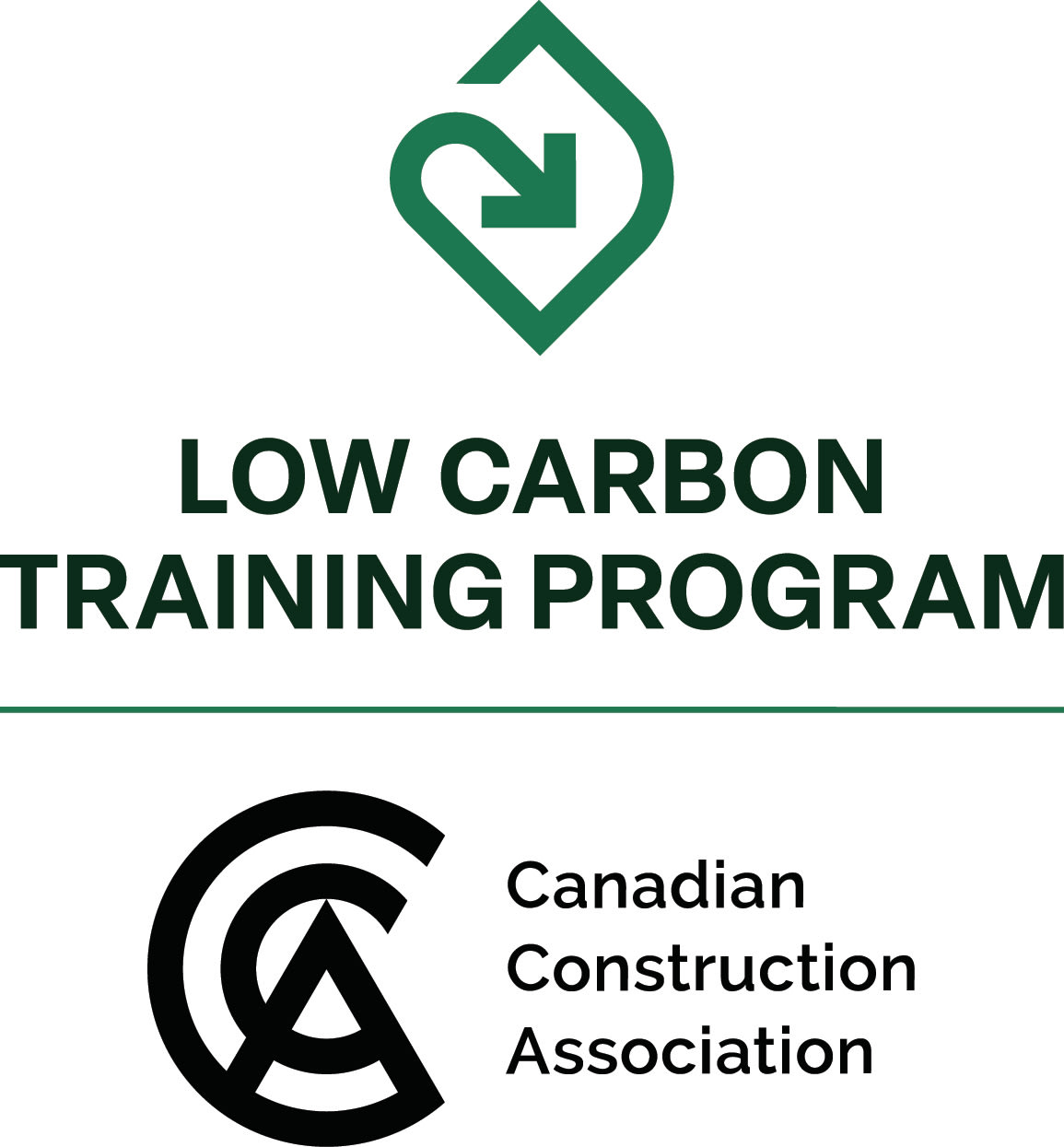Low-Carbon Training Program for Construction Professionals **Limited Seats availble*

Low-Carbon Training Program for Construction Professionals **Limited Seats availble*
January 29, 2024 1:30 PM - January 31, 2024 5:00 PM (MST)
Description

To protect our environment and reduce the impacts of climate change, the Government of Canada has committed to reducing Canada’s total GHG emissions to 40-45 per cent below 2005 levels by 2030, and to reach net zero by 2050.*
As the buildings sector is Canada’s third-largest source of emissions, prioritizing decarbonization is critical to meeting this net zero target*, and addressing climate change requires awareness, collaboration, knowledge sharing, and skill-building.
*Source: Natural Resources Canada
Funded in part by the Government of Canada’s Sectoral Workforce Solutions Program, the Canada Green Building Council (CAGBC) in partnership with the Canadian Construction Association (CCA) has developed the
Building Skills for Climate Change: Low-Carbon Training Program. This program is aimed at upskilling building professionals, including architects, engineers, contractors, and owners and operators, to accelerate the adoption of low-carbon practices, reduce emissions, and contribute to Canada’s Climate Action Plan and Just Transition. For more information, see the media release.
This complimentary training will be offered virtually, in three half-day sessions, through CCA’s integrated partner associations in the federally mandated provinces of AB, BC and ON. The training will provide construction professionals with the fundamentals of low-carbon building retrofits or new builds, an essential step in advancing our industry’s contribution to greening our country.
The Low Carbon Training Program is funded in part by the Government of Canada and led by the Canada Green Building Council.
At the end of this Training Program you will receive
- A certificate of Completion for the training program
- Two Gold Seal Credits (Valid applicants only)
Learning Outcomes
Day 1 and 2
- Module 1: ESG (Environment, Social, Governance) principles serve as a comprehensive introduction to the core elements of low carbon buildings. We will delve into the significance of these principles in the context of low carbon building practices. Specifically, we will explore the environmental impacts of buildings, address social considerations, and discuss governance issues. This module will provide you with a solid foundation for understanding how ESG principles drive practice and why they are integral to achieving low carbon building objectives.
- Module 2: Integrated Design Process (IDP). We will delve into the principles, methodologies, and practical application of IDP, emphasizing its role in achieving sustainability goals through collaboration and innovation. This module equips you with the knowledge and tools necessary to integrate design processes effectively, fostering innovation and sustainability in low carbon building design.
- Module 3: delves into Operational Carbon in the context of low carbon buildings. You will gain insights into the various sources of carbon emissions, the relative impact of each source, operational emissions, energy modeling, carbon and energy management, and energy reporting. This module equips you with the knowledge and tools necessary to manage and mitigate carbon emissions effectively in low carbon building operations.
- Module 4: dives into Embodied Carbon, a crucial aspect of a building's environmental impact. You will explore Life Cycle Assessment (LCA), and specifically, whole building LCA as well as practical methods to assess and manage embodied carbon. This module equips you with practical knowledge to make informed decisions about embodied carbon and its impact on low carbon buildings.
- Module 5: covers Transition Planning, a crucial aspect of achieving low carbon building goals. The knowledge gained in earlier modules gets applied into practice with transition planning. Participants will gain insights into the need for transition planning, its benefits in decarbonizing, and how it applies to both new buildings and retrofits. The module also covers Capital Equipment Inventory and Capital Planning as integral components of effective transition strategies. This module equips you with the knowledge and tools necessary to support development of effective transition plans, paving the way for low carbon building practices and infrastructure.
- Module 6: short review and summary to wrap up.
Day 3
- Module 1: Introduction to low carbon construction. Participants will be able to understand the principles of low carbon construction, discuss how building design can affect the optimization of low carbon construction, understand the energy efficiency achieved when implementing low carbon construction, describe the wise use of water resources and understand building science principles.
- Module 2: Lowering carbon footprint in the construction industry. Participants will be able to Identify material selection important in reducing carbon footprint, including life cycle assessment and key factors in considering low carbon materials, understand how heating/ventilating/air conditioning (HVAC) choices impact energy consumption, identify how variable air volume (VAV), energy recovery ventilator (ERV) and demand control ventilation (DCV) improve energy efficiency, discuss energy-efficient electrical systems, including how choices impact energy consumption, identify renewable energy resources, including solar panels and Energy Star appliances and understand the importance of waste reduction and how it reduces the carbon footprint on construction projects, including strategies for waste reduction, the use of prefabricated and modular techniques and waste management plans.
- Module 3: Benefits of low carbon construction. Participants will be able to Identify and understand the benefits of low carbon construction, including reduced energy costs, embodied carbon, carbon footprint, maintenance costs, and healthier air quality.
Self-declaration
The Government of Canada provides funding for this program under the Sectoral Workforce Solutions Program from Employment and Social Development Canada (ESDC). Participation in this program is limited to individuals legally entitled to work in Canada according to the relevant provincial and federal legislation and regulations as a Canadian citizen, permanent resident, or individual who has been granted status as a refugee. If you are not a Canadian citizen, permanent resident, or individual who has been granted status as a refugee please do not move forward with the registration process.
, AB
This is a three day training program:
January 29, 2024 - 1:30pm - 5:00pm MST
January 30, 2024 - 1:30pm - 5:00pm MST
January 31, 2024 - 1:30pm - 5:00pm MST
29
